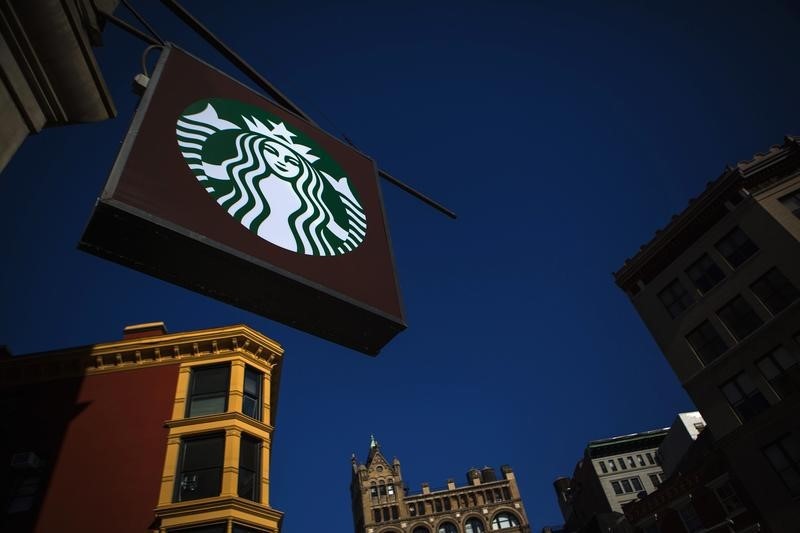Daniel Wiessner
(Reuters) – A U.S. appeals court on Wednesday rejected Starbucks’ (NASDAQ:) claims that an election won by a union at the coffee company’s flagship store in Seattle was invalid because it was held by mail during the COVID-19 pandemic.
A three-judge panel of the 9th U.S. Circuit Court of Appeals upheld a National Labor Relations Board decision that said the company, facing a nationwide union organizing campaign, must recognize and negotiate with the store union that represents nearly 100 workers.
Starbucks said a labor board official that ordered an all-mail election in March 2022 used incorrect data to determine that in-person elections were unsafe as COVID cases were trending upward in the Seattle area at the time. Store workers voted 38 to 27 to join the union.
On Wednesday, the 9th Circuit disagreed, finding that the official correctly applied a test the board adopted in 2020 to determine when a mail-in election is appropriate because of the pandemic.
Starbucks and Workers United, the union that organizes the company’s stores, did not immediately respond to requests for comment.
During the pandemic, most union elections have been conducted through mail-in ballots, and the labor board still calls mail-in elections in some cases.
Business groups and Republican lawmakers have criticized the labor board for continuing to avoid in-person elections even as the pandemic has subsided. They say mail-in elections reduce voter participation and threaten workers’ rights to choose whether they will be represented by a union.
remove advertising
.
In a 2020 decision involving hospital operator Aspirus, the labor board said that, among other factors, regional directors must consider the 14-day trend in local COVID cases when deciding how to conduct union elections.
In Wednesday’s case, Starbucks said that meant looking at the average number of new cases each day over a 14-day period, rather than the number of cases reported at 14-day intervals, as the regional director did.
But the 9th Circuit noted in its decision that the labor board had not defined what a 14-day trend was or developed a specific method for calculating it.
“Even if we trust Starbucks’ approach … our standards of review do not allow us to reject the NLRB’s choice between two rather contradictory views,” Circuit Judge M. Margaret McKeown wrote for the court.
Workers at more than 420 of Starbucks’ 9,000 U.S. stores have voted to unionize starting in 2021. The 9th Circuit case is one of several involving the organization’s campaign to reach federal appeals courts.


